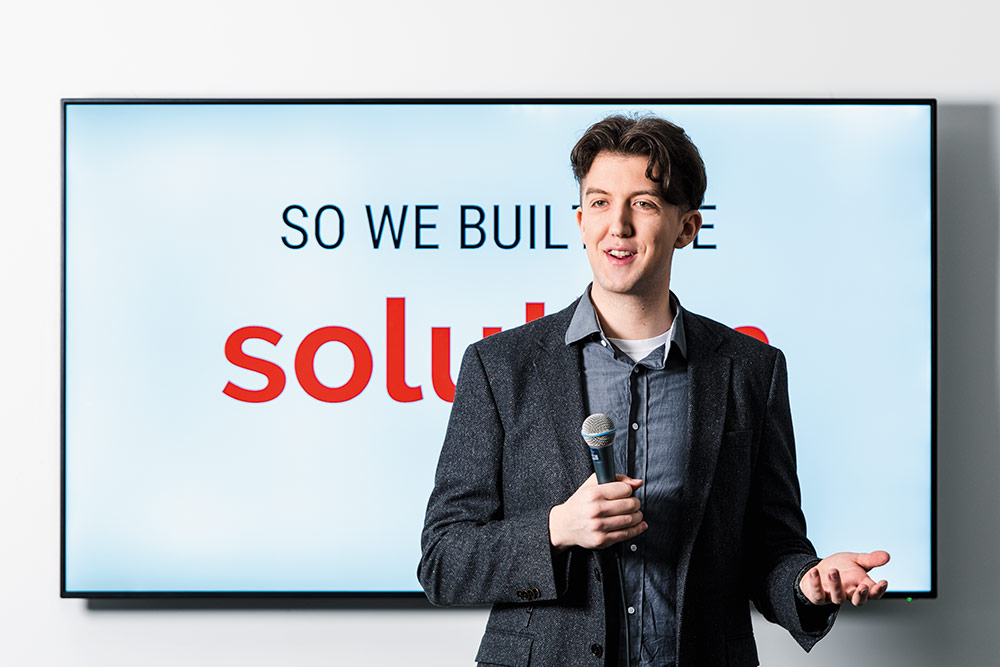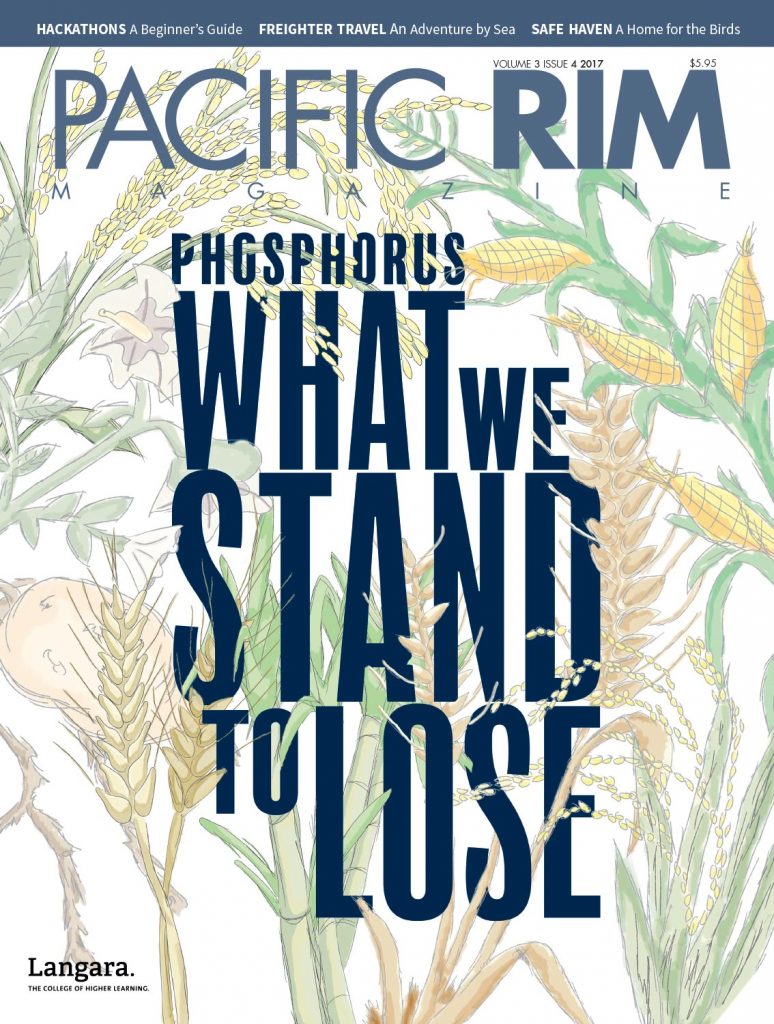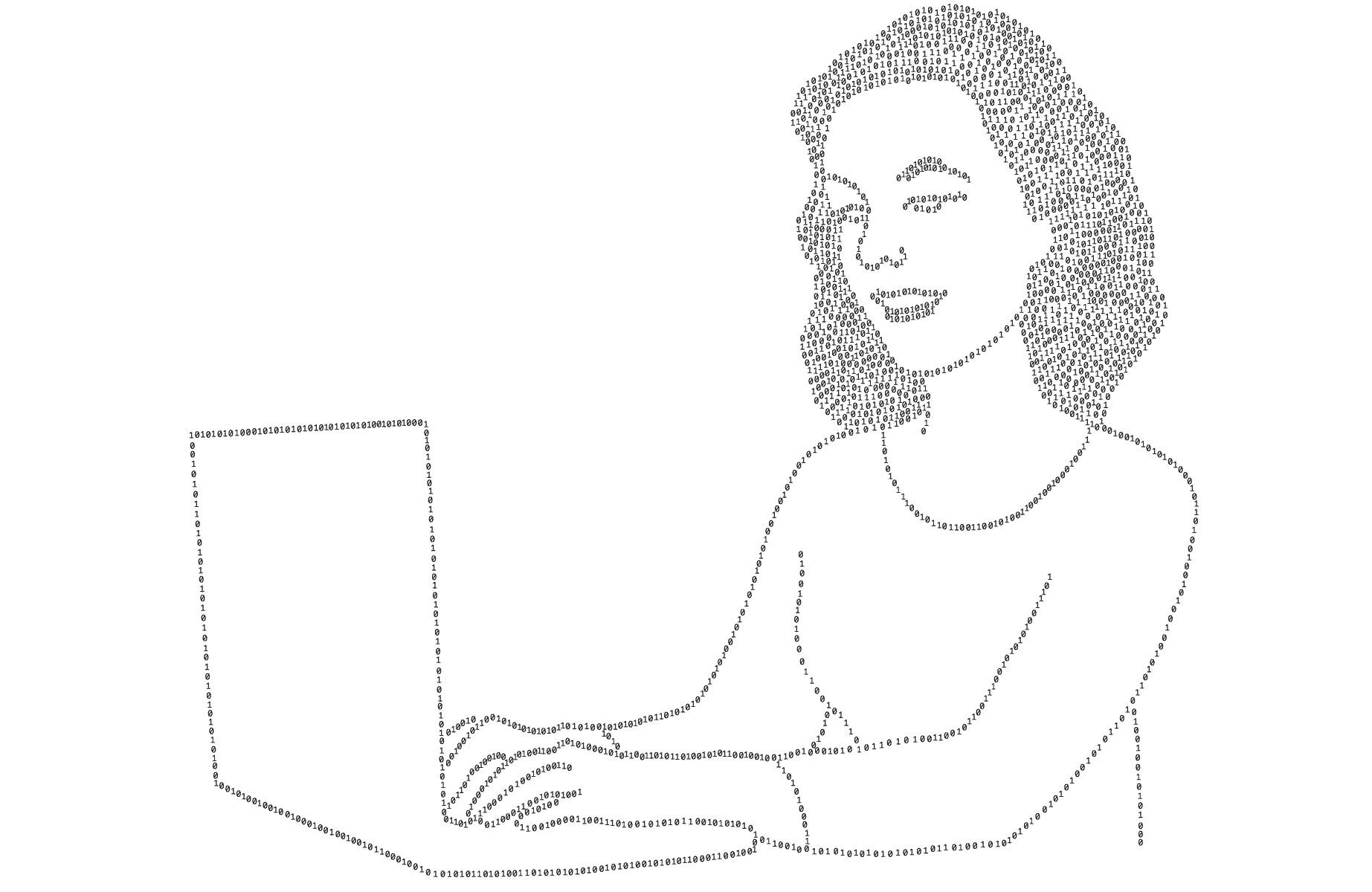Imagine you are in a room filled with scribbled whiteboards, heads bent over keyboards, and empty energy drink cans crumpled on the floor. Sitting among this chaotic mess are developers, designers, and entrepreneurs; in other words, the creators of tomorrow. Hackathons are usually one- to two-day events where developers and designers collaborate to tackle social problems through creative and technological means. Sounds a bit intimidating, doesn’t it? If you aren’t a developer, designer, or entrepreneur, it might seem overwhelming. The good news is if you have an innovative idea and a strong work ethic, hackathons can help you realize your vision.
Most hackathons welcome people who don’t know how to code or don’t have technical backgrounds. In his 2015 blog post, “Hackathons are for Beginners,” Tim Fogarty, commissioner of Major League Hacking, writes he has seen beginners participate at every hackathon he has ever been to. Organizers post registration forms and the event’s theme on their website in advance, and encourage participants to think of ideas ahead of time.
Hackathons commonly take place on weekends, which gives many people a chance to attend. The event can begin as early as 8:00 am with participants checking into the venue. The organizers kick off the hackathon with an introduction to the themes and issues to be addressed. The attendees pitch their solutions to these problems, and then network to form teams with other people interested in the same ideas. At around 10:00 am the teams branch off and hack away on a solution for the next eight hours. After a long and intensive day, the teams pitch their idea to a panel of judges. The panel is comprised of innovation advocates in fields ranging from public health to technology to business. The teams with the best solutions often win monetary prizes, but it depends on the hackathon.
Hackathons are not just for software developers. Hackathons are for anyone who is passionate about solving problems. This was the case for Coquitlam, BC, resident Grace Zhou. She went to her first hackathon in March 2016. Zhou, a master of Science in eHealth candidate at McMaster University, was encouraged by her professors and peers to attend hackathons as a way to explore innovations in health care.

Zhou was one of over 60 people who attended the Open Data Hackathon Day (Open Data) on March 5, 2016 at BrainStation, a technology training institution in downtown Vancouver. The hackathon teams’ focus at Open Data is to prototype an app idea that makes open data easily accessible to people who need it most. Apps have to fit in one of six categories: transit, environment, social impact, best mobile, visualization, and health. Teams have less than 12 hours to come up with an app that will solve a problem in one of these categories.
At the end of an intense day, over 15 different projects emerged. Although Zhou did not work on an e-health focused problem, she was intrigued to see how developers and designers might undertake an issue of this nature. “I recommend people from all different sectors or different stages of their career participate, so that everyone can share more knowledge and things can be discussed from different perspectives,” says Zhou.
Kevin Chen, a master of Engineering Leadership in Urban Systems candidate at the University of British Columbia, accompanied Zhou to the March hackathon. It was the first hackathon Chen attended as well. Chen wanted to see how people interact at these events. He didn’t have any coding skills, but that did not stop him leading the idea development. Chen felt there was a lack of convenient tools to help tourists, or even locals, plan activities in Vancouver. He pitched an app that could make a schedule based on a few simple parameters from open data sets. Two other participants liked the idea and joined Chen and Zhou in brainstorming how the app would function. After eight hours of work, Chen and his team pitched their idea. Although they did not win in any of the six categories, Chen says, “I like the fact that you can come up with a creative, interesting solution. I’ve seen some creative ideas out there and how innovative people can be.”
The major winner of that night was team Food, Bed, Med. They won in three out of the six categories. The Food, Bed, Med team consisted of four developers, a designer, and three non-technical professionals. The team developed a fully functioning pay-as-you go phone service app that allows users to text their location to receive information on the closest medical clinics available and their hours of operation. The goal was to quickly connect people with information on social services.
Kurtis Stewart, one of the members of the Food, Bed, Med team, has been attending hackathons since September 2015. Stewart, who does not have a technical background, was the project manager and presenter for Food, Bed, Med. He likes hackathons because they show how much people can get done in less than eight hours. “I’m always just amazed at what we have at the end of the day, whether it be a working product or not,” says Stewart.
Food, Bed, Med’s success was not just due to the functioning product, but also to Stewart’s ability to pitch the idea. “I think there are a lot of great ideas that don’t get a really good sales pitch. So, they get put in the bottom of the rung,” says Stewart. “The best pitch wins. It doesn’t matter how cool the product is or how much time people spend on things.”
Hackathons are a great way to create innovative solutions, but they also bring people with shared interests together. Spending eight hours in a room helps teams get to know each other. “I’ve always made really good connections with people. I know if I’m showing up for this hackathon, it’s the kind of people that I want to meet, rather than just scrolling through LinkedIn for business contacts,” says Stewart.
If you’re not in the tech or health industry, you’ve probably never heard about hackathons before. “If I wasn’t in the health care tech knowledge field, I wouldn’t be able to hear about it too much,” says Zhou. “If you’re in the traditional sector, you wouldn’t know what a hackathon is.” Zhou believes hackathons can make a big difference, and she is not alone. As awareness around hackathons grows, people from different perspectives and diverse backgrounds have an opportunity to get involved. This gathering of minds promises fresh discoveries and innovative ways to deal with global issues from the environment to the health industry. Hackathons can help solve the problems that future generations face.











